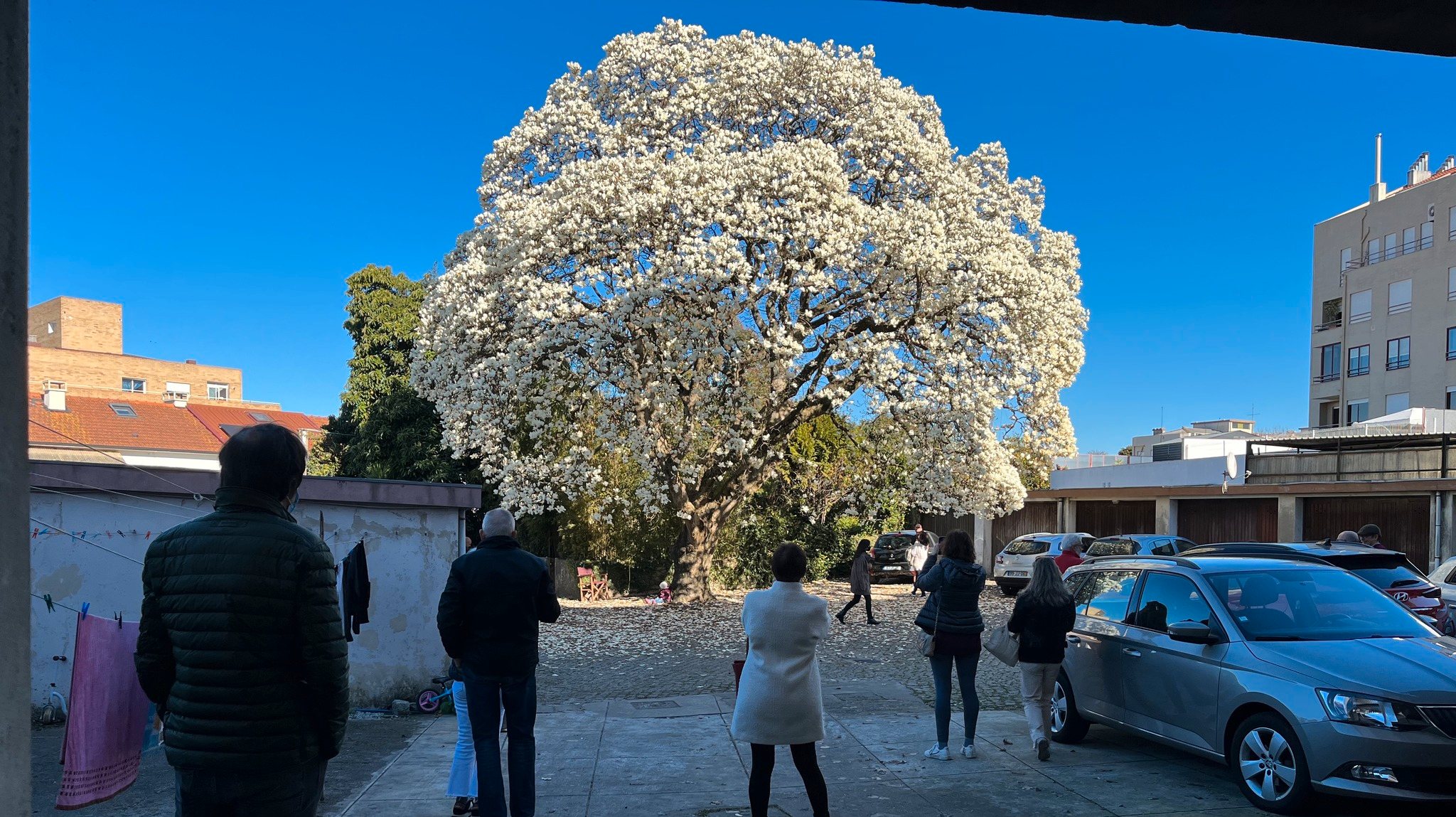Afonso Reis Cabral grew up in the shade of the leafy magnolia tree planted at the back of the building on Rua de S. Vicente, in Prelada, in Porto. “I moved to Lisbon when I was 18 years old, but until then he was the most imposing living thing I had ever seen. I lived in his shadow, ”the writer tells the Observer. Like him, other neighbors share memories of childhood, adolescence and adult life around the hundred-year-old and rare tree. To preserve it, they asked the Institute for the Conservation of Nature and Forests (ICNF) to classify it as a tree of national interest, far from imagining that the opposition of a family, owner of fractions of the property, would hinder this achievement. process.
In January of last year, Afonso Reis Cabral and some residents of the building where the writer’s parents have a house got together and opened the back doors for the public to admire the tall magnolia painted white. It was to their surprise that they saw hundreds, “perhaps even thousands”, of people show up. “There were even problems with parking and circulation.“, describes the Observer. Biologists and professors of landscape architecture “more than validated” the idea that the tree was of national interest.
“We believe that a living being like this transcends us and that we have a duty to protect it,” says the 32-year-old writer. For this reason, in March of last year, the magnolia tree was nominated for classification by the ICNF as a tree of national interest. He was pleased to receive confirmation that the institute had the same understanding. The letter was sent to all the owners, but each one had to pronounce it. And one family, who owned the land before the building was built and now owns fractions of the building, opposed the idea.
“It took me completely by surprise. This same family that swears to love the tree is the same family that now, receiving the office, objected to the classification and protection, without any reasonable reason, without any grounds. What they allege is mere inconvenience”, says the author, who dedicated this Wednesday’s column in the Jornal de Notícias to the controversy. The same family, he adds, alleges “lack of privacy”, an argument that Afonso Reis Cabral rejects. “The classification does not oblige to show [a magnólia] for the public. The reality of the area, the life of the building, remain exactly the same. It would only change the legal status of the tree, which is now protected”, he explains.
The law, he says, does not require the consent of the owners for the tree to be considered of national interest. This was, in effect, the understanding that the ICNF sent to Afonso Reis Cabral and the other residents. The Observer requested clarification from the institute, but is awaiting a response.
“I cannot understand that an objectively good initiative that protects a living being that transcends us and that was the object of the admiration of the entire city is blocked because a family that owns some fractions of the building understands that it is an inconvenience,” criticizes Afonso Reis. Cabral, who does not believe that the family’s intention is to cut down the tree. The statute would ensure that, in the future, the fate of the magnolia tree would not be dictated by anyone’s will. Specifically, it would prevent the tree from being felled or even intervened, for example, pruned without notifying the institute.
The writer, who won the José Saramago Award in 2019 with the book “Pão de Açúcar”, now considers, together with other residents and Cláudia Fernandes, a professor of landscape architecture at the University of Porto who supported the initiative from the beginning, move forward with the petition to the ICNF”to channel the effort and indignation of citizens, who have a civic duty to protect a living being like this magnolia tree.”
“It is a small brand, but we believe that great things can be done with small gestures and we would like that to be the case”, he concludes.
Source: Observadora
